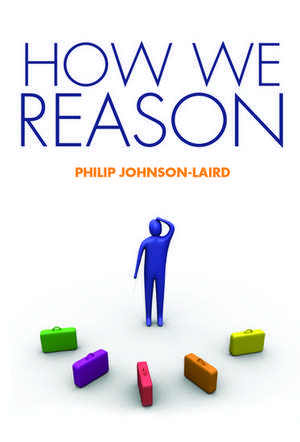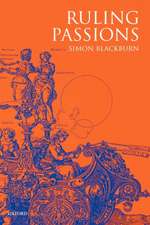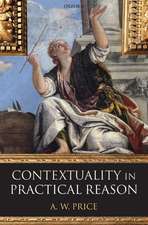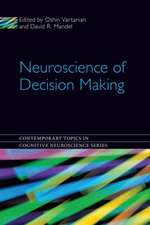How We Reason
Autor Philip Johnson-Lairden Limba Engleză Paperback – 22 oct 2008
| Toate formatele și edițiile | Preț | Express |
|---|---|---|
| Paperback (1) | 348.50 lei 31-37 zile | |
| OUP OXFORD – 22 oct 2008 | 348.50 lei 31-37 zile | |
| Hardback (1) | 473.33 lei 31-37 zile | |
| OUP OXFORD – 25 oct 2006 | 473.33 lei 31-37 zile |
Preț: 348.50 lei
Preț vechi: 438.82 lei
-21% Nou
Puncte Express: 523
Preț estimativ în valută:
66.69€ • 69.80$ • 55.50£
66.69€ • 69.80$ • 55.50£
Carte tipărită la comandă
Livrare economică 19-25 martie
Preluare comenzi: 021 569.72.76
Specificații
ISBN-13: 9780199551330
ISBN-10: 0199551332
Pagini: 584
Ilustrații: 18 figures; 12 black and white photos
Dimensiuni: 155 x 234 x 33 mm
Greutate: 0.92 kg
Editura: OUP OXFORD
Colecția OUP Oxford
Locul publicării:Oxford, United Kingdom
ISBN-10: 0199551332
Pagini: 584
Ilustrații: 18 figures; 12 black and white photos
Dimensiuni: 155 x 234 x 33 mm
Greutate: 0.92 kg
Editura: OUP OXFORD
Colecția OUP Oxford
Locul publicării:Oxford, United Kingdom
Recenzii
No cognitive scientist has thought more deeply about human reasoning than Philip Johnson-Laird. In an amazingly comprehensive volume, he presents the fruits of a lifetime of experimentation and reflection.
'How We Reason' is the essential guide for anyone who wants to understand the human mind. Phil Johnson-Laird is both erudite and entertaining and his prose sparkles with wit and verve. This book paints a more complete picture of human thought than any other on inference. I couldn't put it down.
Philip Johnson-Laird's Mental Model Theory owes its outstanding impact on the psychology of reasoning to its unique breadth, insightfulness, and creativity. In 'How we Reason', Johnson-Laird has achieved the feat of presenting this challenging view of human thinking in a simple and yet comprehensive way, with concrete examples and elegant explanations. This highly readable book deserves a wide audience.
'How We Reason' is the essential guide for anyone who wants to understand the human mind. Phil Johnson-Laird is both erudite and entertaining and his prose sparkles with wit and verve. This book paints a more complete picture of human thought than any other on inference. I couldn't put it down.
Philip Johnson-Laird's Mental Model Theory owes its outstanding impact on the psychology of reasoning to its unique breadth, insightfulness, and creativity. In 'How we Reason', Johnson-Laird has achieved the feat of presenting this challenging view of human thinking in a simple and yet comprehensive way, with concrete examples and elegant explanations. This highly readable book deserves a wide audience.
Notă biografică
Phil Johnson-Laird was born in Yorkshire, England, in 1936. He left school at the age of 15 and spent ten years in a variety of occupations until he went to University College, London to read psychology. He later gained his Ph.D. there under the supervision of Peter Wason, and he joined the faculty in 1966. In 1971, he was a visiting member of the Institute of Advanced Study, Princeton, where he began a collaboration with George A. Miller. Subsequently, he held positions at the University of Sussex (1973-1981) and at the Medical Research Council's Applied Psychology Unit (1981-1989) in Cambridge, where he was also a Fellow of Darwin College. He returned to Princeton in 1989 to be a member of the faculty at the University, where he is the Stuart Professor of Psychology. His research concerns thinking, emotions, creativity, and music.











